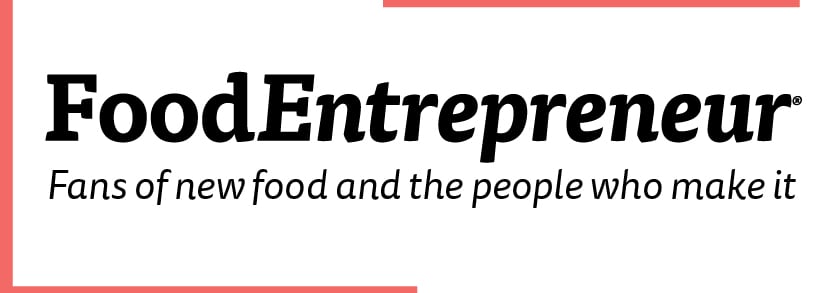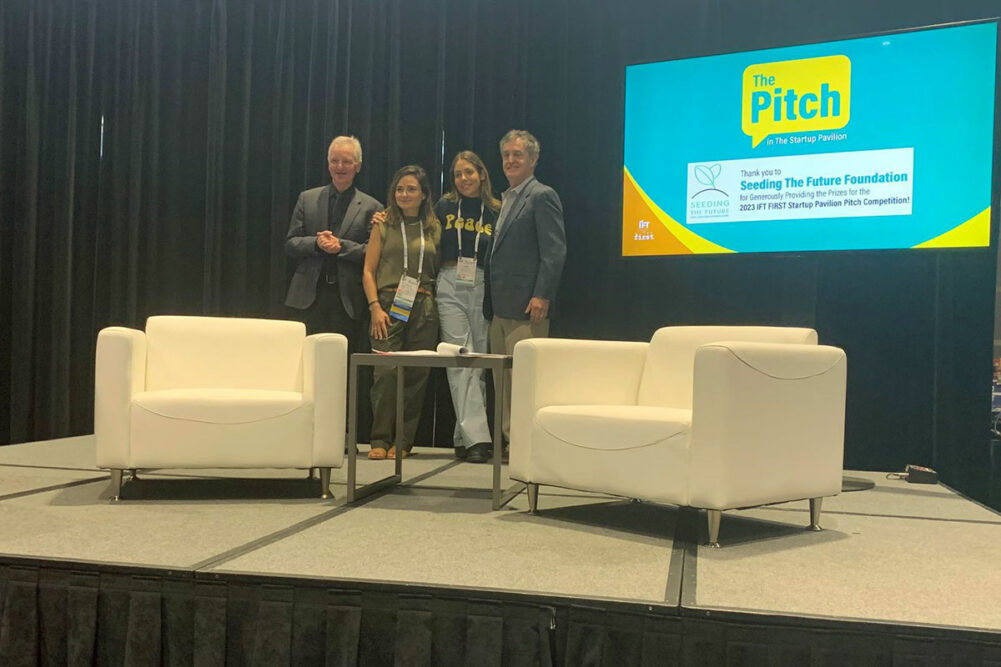 CHICAGO — Dozens of startups participated in a pitch competition at IFT FIRST, the Institute of Food Technologists’ annual meeting, held July 16-19 in Chicago.
CHICAGO — Dozens of startups participated in a pitch competition at IFT FIRST, the Institute of Food Technologists’ annual meeting, held July 16-19 in Chicago.
Twelve finalists tackling key food system challenges were evaluated by a panel of leaders in innovation, venture capital, academia and product development. The pitch event was presented in partnership with Seeding the Future Foundation, an organization committed to advancing access to safe, nutritious and affordable food.
Helaina, a New York-based biotechnology company producing breast milk proteins, won the $10,000 grand prize. The company has developed human lactoferrin, a bioactive compound that “regulates iron levels, improves nutrient absorption and improves cognitive health,” said Paola Delgado, chief operating officer.
“The only comparable ingredient in the market is bovine lactoferrin, that trades for up to $1,500 per kg,” she said. “It is supply constrained and incredibly wasteful, taking 2,000 liters of milk to make 1 kg of lactoferrin. But the opportunity is huge. Its market has doubled in size in the past five years. We are here to take over and to expand this market with a more efficacious and cost-effective ingredient.”
Helaina is targeting sports nutrition and prenatal nutrition markets initially, with plans to expand into elderly nutrition and infant formula applications. The company, which has raised more than $25 million in funding to date, is performing pre-clinical and clinical studies to achieve regulatory approval for the ingredient, Ms. Delgado said.
“Our proprietary precision fermentation platform is able to make human bioactive ingredients at a fraction of the cost,” Ms. Delgado said. “This is the future of food as medicine. This is functional ingredients 2.0.”
Two runners-up were awarded $2,500 prizes. UnClassic Foods is a San Francisco-based maker of meat alternatives based on oyster mushrooms, founded by a food scientist with prior product development stints at Beyond Meat and Eclipse Foods.
“The one success story in the alternative world is liquid milk, and oat, almond and soy milk never had price or taste parity,” said Luiza Villela, founder of unClassic Foods. “What they did have, they convinced everyone they were truly healthy, and they weren’t trying to mimic milk, just function like it. Now we’re going to do the same for steak using specialty mushrooms.”
The startup offers frozen, grilled pieces inspired by sirloin steak tips and formulated with oyster mushrooms, chickpea flour, olive oil, salt and seasoning.
“In order to compete with meat for our target audience, we need to be like meat enough that people want it but not too much that it feels fake because authenticity really matters in food,” Ms. Villela said.
The other runner-up, SnapDNA, Broomfield, Colo., has created rapid pathogen testing technology that may offer operational cost savings for food companies, said David Medin, chief executive officer. SnapDNA has completed paid pilot tests with multinational food companies, including Taylor Farms and PepsiCo, Inc., and is scaling production for a launch later this year.
Traditional testing for pathogens including Listeria, Salmonella and E. coli may produce results in three to seven days. SnapDNA devices detect live cells in one hour with near zero false positives, Mr. Medin said.
“When one company in a sector adopts SnapDNA, the rest must follow to stay price competitive,” Mr. Medin said. “Unlike lab tests SnapDNA can measure the number of cells in each sample to trace contamination in hours versus weeks and enable AI analytics to identify risks before they become contaminations.”
Other concepts highlighted during the pitch competition included cell-cultured tuna, perennial grains, sustainable aquaculture, smart factory transformation, and bioactive ingredients extracted from red sorghum.Enjoying this content? Learn about more disruptive startups on the Food Entrepreneur page.





